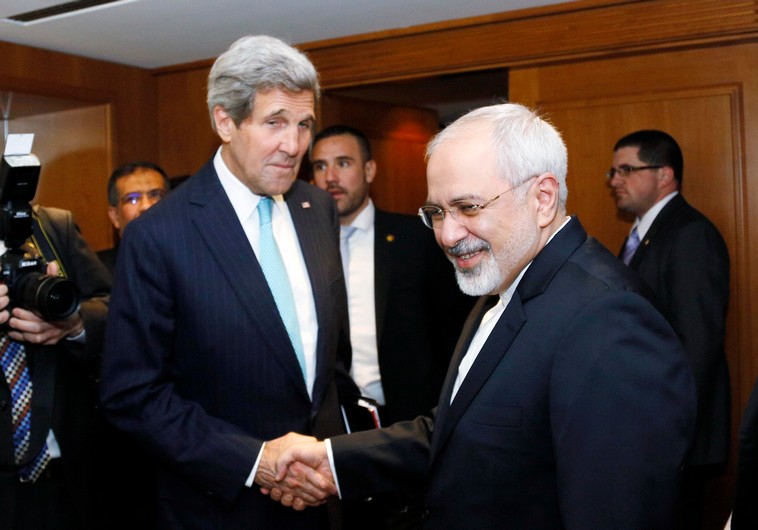Who is lurking in the shadows of Iran’s nuclear talks?
Camelia Entekhabi-Fard/Al Arabiya
Tuesday, 27 January 2015
Debating whether to support or undermine the diplomatic channel opened with Iran over the nuclear talks is currently a hot topic for U.S. senators amid the freezing temperatures that are sweeping the country. “For those who agree that the sanctions bill in the Banking Committee is detrimental, this resolution provides an option in support of diplomacy,” Democratic Senator Dianne Feinstein, a leading co-sponsor of the resolution with Senator Chris Murphy, said in a statement on Monday January 26.
Eleven Democrat members of the U.S. Senate introduced a resolution on Monday opposing more sanctions on Iran unless nuclear talks fail or Tehran breaks the agreement. “The political struggle is not only between the Democrats and Republicans in the U.S., Iran is also facing an internal struggle” This new resolution countering a push for tougher sanctions backed by Republicans that President Barack Obama threated to veto if it comes across his desk.
President Obama told the Congress members on January 20 to hold back the new sanctions while the talks with Iran make progress. “Our diplomacy is at work with respect to Iran,” he said, “where, for the first time in a decade, we’ve halted the progress of its nuclear program and reduced its stockpile of nuclear material. “Between now and this spring,” the president continued, “we have a chance to negotiate a comprehensive agreement that prevents a nuclear-armed Iran; secures America and our allies – including Israel; while avoiding yet another Middle East conflict.”
Thinking differently
Apparently the majority of Congress’ members were thinking differently. While the president asked Congress to halt any action against Iran at least until the deadline of July 1, when the interim agreement expires, the Congress seemed to be following a different agenda.
Backing Obama, a group of Democrats in the Senate decide to undermine Republican efforts as the it seems Congress wants to pass a new round of sanctions on Iran quickly before the interim nuclear deal expires
In reality what the majority of Congress is pushing for is that Iran dismantle all its nuclear activity and this is the core of their differences with the president. President Obama threatens Congress with a veto if they approve the new sanctions on Iran’s nuclear program while the diplomatic channel is active and the talks are ongoing. This political struggle is not only between the Democrats and Republicans in the U.S., Iran is also facing an internal struggle. President Hassan Rowhani is under pressure and certain parties and powers are working hard to break up the talks.
Drawing closer together
Opponents to the talks in the U.S. and Iran are not necessarily against the talks as such, more the idea that the two countries could be drawing closer together. Within two weeks, Iran will be celebrating 36-years of its revolution and at this stage nothing is more important than ending the country’s international isolation. That need was expressed by the public when it astonishingly elected Hassan Rowhani as president. The message was clear for Iran’s ruling elite and they know the importance of fixing the problem before anger and frustration rise in public.
For President Obama it is also important to curb Iran’s nuclear program before leaving office in 2017. Forging a relationship with Iran is key to fighting terrorism in the region as Iran can act as a partner is curbing ISIS.
In light of this, there has been evidence that all parties are making concerted efforts to speed up the talks. In the past two weeks, Iran’s Foreign Minister Mohammad Javad Zarif, the chief nuclear negotiator, held countless bilateral meetings with the U.S. Secretary of State John Kerry in Europe. Also, P5+1 political directors are set to meet in Istanbul while Zarif holds a ministerial level meeting in Munich on the sidelines of the Security Conference.
President Obama and President Rowhani both showed some optimism with regard to reaching an agreement by the end of March and then regarding discussing the technical aspects of the agreement to be tackled by the end of June. It may be that this March President Obama greets Iranians for their New Year’s celebration of Nowrouz with good news of an agreement.























